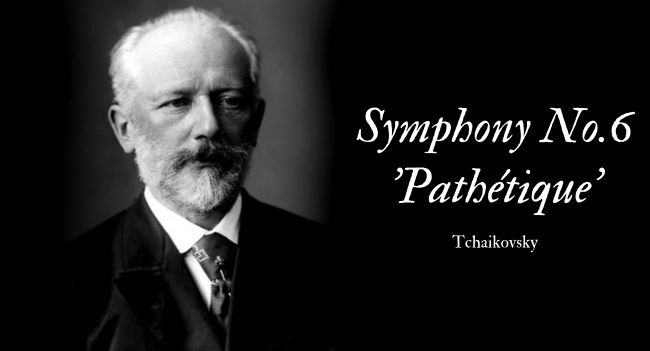The composition of Tchaikovsky’s final symphony was an exhausting process – but its completion was a moment of pure happiness.
‘You can’t imagine how blissful I feel in the conviction that my time is not yet passed, and to work is still possible”. Tchaikovsky’s comment to his nephew Vladimir ‘Bob’ Davydov in February 1893 captures the elation he experienced composing what would ultimately become his sixth and final symphony.
It also hints at the difficulties that writing the new work had created. A first sketch was completed before Tchaikovsky realised he had composed it ‘simply for the sake of composing something’, and the music had no interest. Deflated, he even began wondering if he should ‘go into retirement and start to live out my days quietly’.
Fortunately, however, the programme Tchaikovsky had outlined for the new symphony still existed, and fermented in his imagination. ‘Second part love’, it read in part. ‘Third disappointments; fourth ends dying away’. There, in outline, were the starting points for three of the four movements Tchaikovsky now began casting as an entirely new work in the solemn key of B minor.
Ideas for the music quickly germinated. ‘All my thoughts are now taken up with a new composition’, the composer wrote, ‘and it’s very difficult for me to break away.’ From an early stage he seemed especially affected by the mood of the new piece he was creating. It would ‘be suffused with subjectivity’, he commented. ‘While composing it in my head, I wept a great deal.’
Tchaikovsky wrote the bulk of the manuscript in a house he rented out in Klin, a town 60 miles north-west of Moscow. ‘The work went so furiously and quickly,’ he wrote, ‘that in less than four days the first movement was completely ready, and the remaining movements already clearly outlined in my head.’ A rough draft was completed in three weeks, and by the end of August the finished symphony was ready.
Tchaikovsky himself conducted the premiere of the Sixth Symphony, in Saint Petersburg on 28 October 1893. He personally rated the work highly, calling it ‘the best, and in particular the most sincere of all my creations’. Audience reaction at the premiere was, though, somewhat muted. ‘Something strange is happening with this symphony!,’ he wrote. ‘It’s not that it displeased, but it has caused some bewilderment.’
That ‘bewilderment’ centred particularly on the symphony’s final movement, where life itself appears to slowly ebb away in a slow, lingering song of lamentation. It was a far cry from the up-tempo, often triumphant finale of a typical 19th-century symphony, and it dramatically thwarted expectations. Tchaikovsky himself, however, knew the full value of what he had created. ‘I’m more proud of it than any of my other works,’ he commented.
But just nine days after the Sixth Symphony’s premiere Tchaikovsky died, reportedly of cholera contracted from unboiled drinking water. Before long rumours circulated. Did he drink the water deliberately? Was he depressed or suicidal? Had he been forced to take his own life by a secret ‘court of honour’ formed to sanction him for being homosexual?
Three weeks after its premiere, the Sixth – now entitled ‘Pathétique’ at the request of Tchaikovsky’s younger brother Modest – was played again at a memorial concert for its composer on 18 November. Many listeners now heard the music as ‘a sort of swan song, a presentiment of impending death’ leaving a ‘tragic impression’, as one reviewer put it.
There is little if any evidence Tchaikovsky viewed the Sixth in this narrowly biographical way. But there is no doubting the special affection he felt for the piece, and the pride he took in having composed it. ‘I love it,’ he remarked, ‘as I have never loved any of my other musical offspring.’
